What is it about "yearning" that we long for?
Why we're all secretly craving the slow burn of romance.
It’s winter, and between work, my life consists mostly of working out with my trainer, brisk walks, cooking, and binging new series and old favorites. Although recently, I’ve noticed a prominent theme of romance in my viewing choices. But it’s more than romance—it’s a particular concept tied to it. Hear me out.
For the last couple of weeks, Grey’s Anatomy is back on rotation. I’ve been watching Grey’s since it first aired, but every two years, I’ll rewatch the first 10 seasons. Why? Simply because McDreamy, his gentle eyes, and his love for Meredith is something that will never get old for me.
But as I think about these two, I realize that it’s really the first six seasons of Grey’s that I love the most. These are the seasons that tortured us with all their push and pull: their quintessential moments in the elevator, the long glances, them ignoring each other, then hating each other, then trying to be friends, and my personal favorite—the moments they give in to it all.
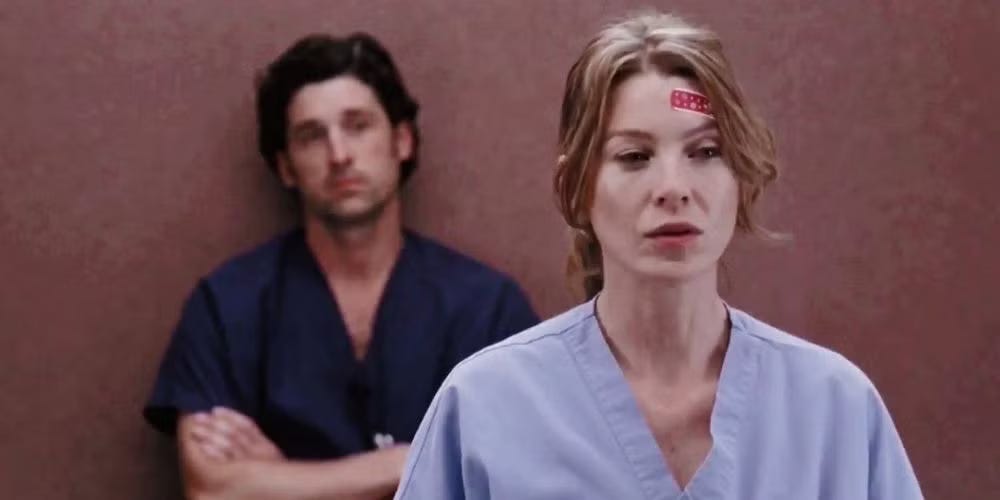
Whether it’s because he was still married or she was emotionally unavailable, Derek and Meredith were in a cycle of longing and yearning for each other in these early seasons. And I loved every minute of it.
The irony is that as I write this, “Slave to Love” by Bryan Ferry hit my Spotify. My life can be such a cliché sometimes.
As I was saying, I’ve become obsessed with the concept of yearning as of late. And yes, I’m aware this concept is nothing new—I mean, hello? Pride and Prejudice. Jane Austen is a pioneer in capturing the yearning of a man, Mr. Darcy, who deeply longs for Elizabeth—well before he’s even come close to touching her. Mr. Darcy says so himself: Elizabeth has bewitched him.
Imagine that—two people who didn’t rush into the process of getting physical and allowed the tension to build between them, untouched. Yes, it killed us as readers, but in the best way. It reveals that there is real value in patience when it comes to love and romance—and it makes everything that much hotter.
When we long for someone, it invites us to pay attention to our muse in ways we wouldn’t if we got right to the physical stuff. The yearning is what creates the build-up—it’s the OG foreplay. But longing also creates space for admiration—for a man or a woman to appreciate and revere qualities in their lover they wouldn’t normally see if they got what they wanted, when they wanted it.
Yearning is essentially the anti-thesis of instant gratification and is entirely countercultural to how most romantic relationships are formed today.
I think that’s why I watched Dame Jilly Cooper’s Rivals on Disney a grand total of seven times. I mean, who can blame me? The opening scene features Robert Palmer’s “Addicted to Love” playing over a mile-high club sex scene set in 1980s Britain when airlines had it figured out and people dressed up when they traveled. The whole thing was sensational.
This immediately followed by, Rupert Campbell-Black, the idyllic bad boy of the series, walking down the plane’s aisle with his tailored shirt buttoned open, emphasizing his incredible physique and undeniable sex appeal. I could not keep it together. I was also literally on my way to London, so the timing couldn’t have been better for me to get into this show.
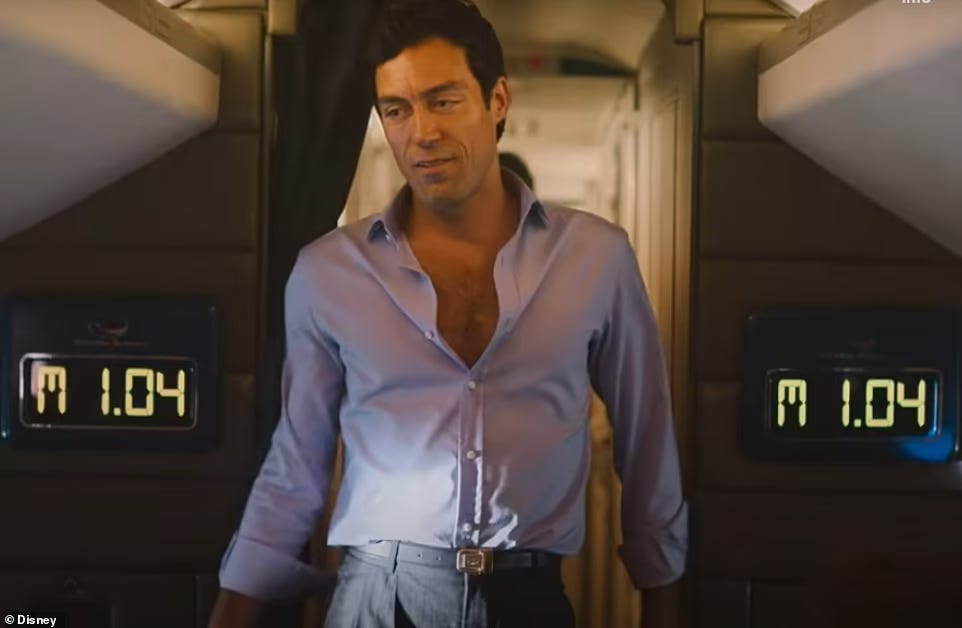
After watching the series the first time, I was hooked for many reasons, the most prominent being the age-gap romance between Rupert and Taggie, forbidden by her father.
To sum it up: Rupert is a retired Olympic showjumper, crass, promiscuous, and quite frankly, an arse with intoxicatingly charming good looks. Yet, despite his remarkable ability to swoon women, Rupert’s not safe when it comes to Taggie—like Mr. Darcy he too gets bewitched.
Taggie, a 21-year-old girl who is innocent, inexperienced, and pure-hearted, is trying to find her place. In many ways, she’s the opposite of Rupert. She’s underestimated by everyone around her, especially her parents, whom she ends up parenting half the time. Wise beyond her years, Rupert is the only person who sees her for who she really is.
In fact, there’s one line he says to her early in the series that affirms the hold she has on him. This marks the moment their dance of yearning begins:
“I see myself quite clearly reflected in your eyes and for once I'm not sure I like what I see.”
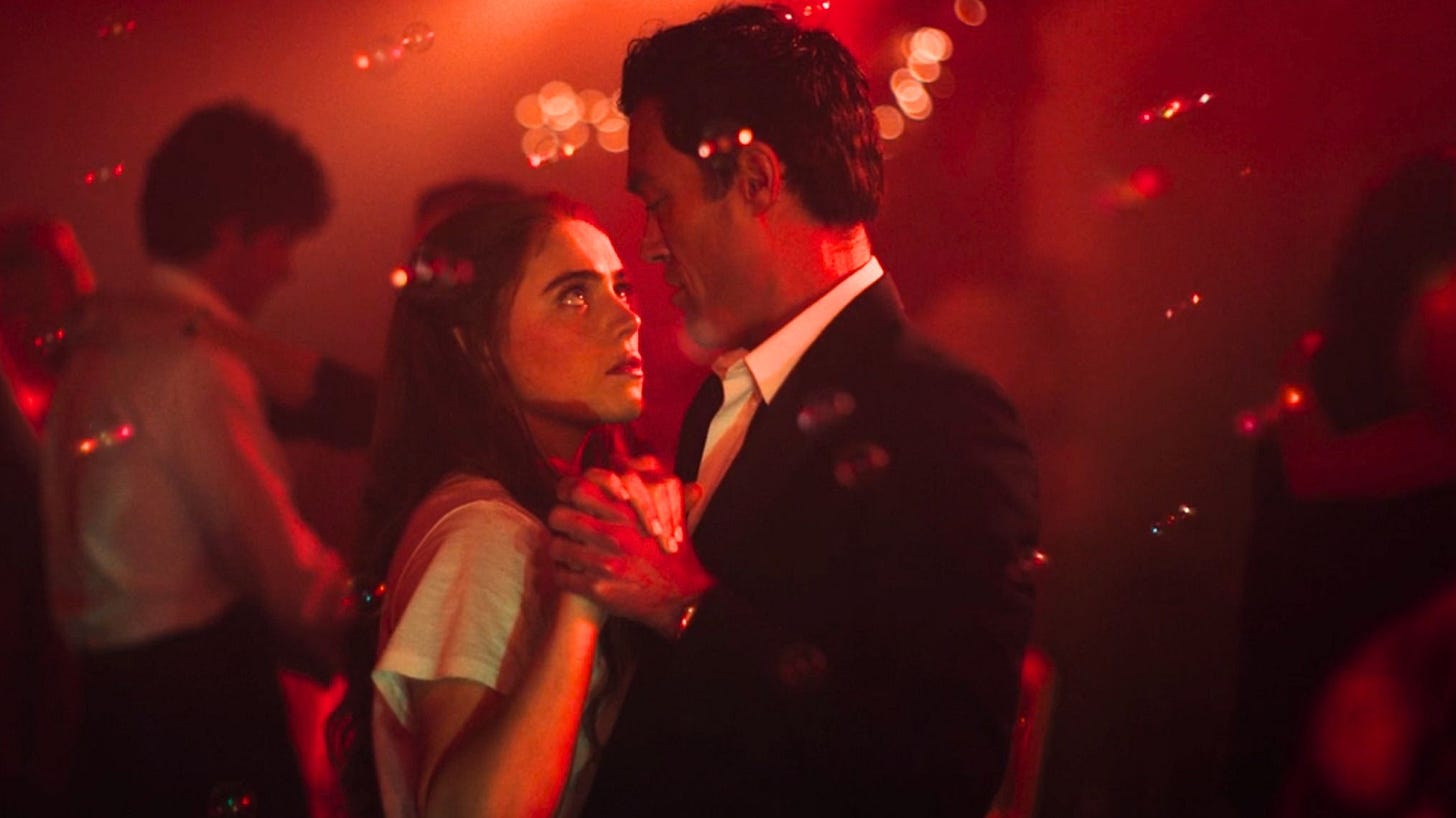
These two see each other deeply in ways no one else can. It’s marvellous.
But what I loved most about their romance is that the focus was not about Rupert needing to change and Taggie needing to “fix” him. The emphasis is on the build-up of their desperate need and desire for each other.
As the show progresses, we see how their yearning for each other strips them bare, exposing how powerless and vulnerable they are, their frustration and pain, the unbearable tension—the rollercoaster of it all.
Like Mr. Darcy and Elizabeth—these two didn’t like each other very much at first. It was only when Rupert fucked it all up and felt what it would be like—even for a moment—to lose Taggie and her respect completely that he could feel the weight of her presence in his life. A stark contrast to how he felt about most women. And as viewers, we don’t just see it—we feel it.
With Rupert and Taggie, we’re given these moments of satiation, where our theories of their love for each other are affirmed. But just as quickly, something happens and the rug is pulled from under us.
What makes this show so incredible is how deeply we feel these emotions alongside the characters—their hope, their pain, their confusion. After my sixth time watching, I ventured online to see if anyone shared these sentiments with me. It’s worth noting that this isn’t something I typically do. But I knew I was onto something.
What struck me the most was how many felt the same way I did. And I believe the reason for this is that many of us are missing this kind of love and romance in our own lives, even in the examples among us.
As I continued reading about the show and the incredible response it received, I realized it was telling a much bigger story about our culture. It was actually quite simple: we’re all longing to long for someone and for someone to long for us.
Rapid innovation and AI have made the experience of dating and pursuing romance algorithmic, predictable, and transactional—a numbers game. It’s put romance into a box and it’s not working because matters of the heart can’t be measured and doesn’t fit into the box that we’ve created.
Dating, courtship, and romance have become an overlly controlled experience. Yet, what makes romance, love, and this concept of yearning so powerful is that it can’t be controlled. Romantic love is free-flowing, unexpected, boundless in nature, and beautifully uncertain.
As a society, our collective need for certainty, instant gratification, and self-protection—rooted in a fear of getting hurt—has led to an unbearable mediocrity in love that’s become far too common and, worse, accepted.
That’s why shows like Rivals have all of us in a damn frenzy—or why people like me are rewatching Grey’s Anatomy for the umpteenth time, clinging to the iconic romance between Meredith and Derek. Although fictional, these art forms give us the space and freedom to feel our feelings deeply and often reveal the emotions we truly crave but are too afraid to confront in real life.

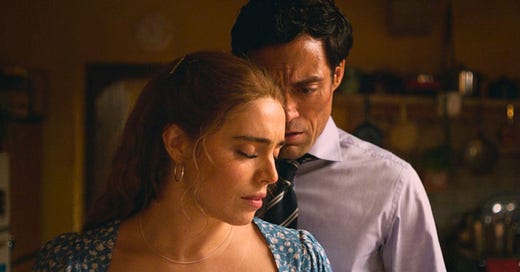



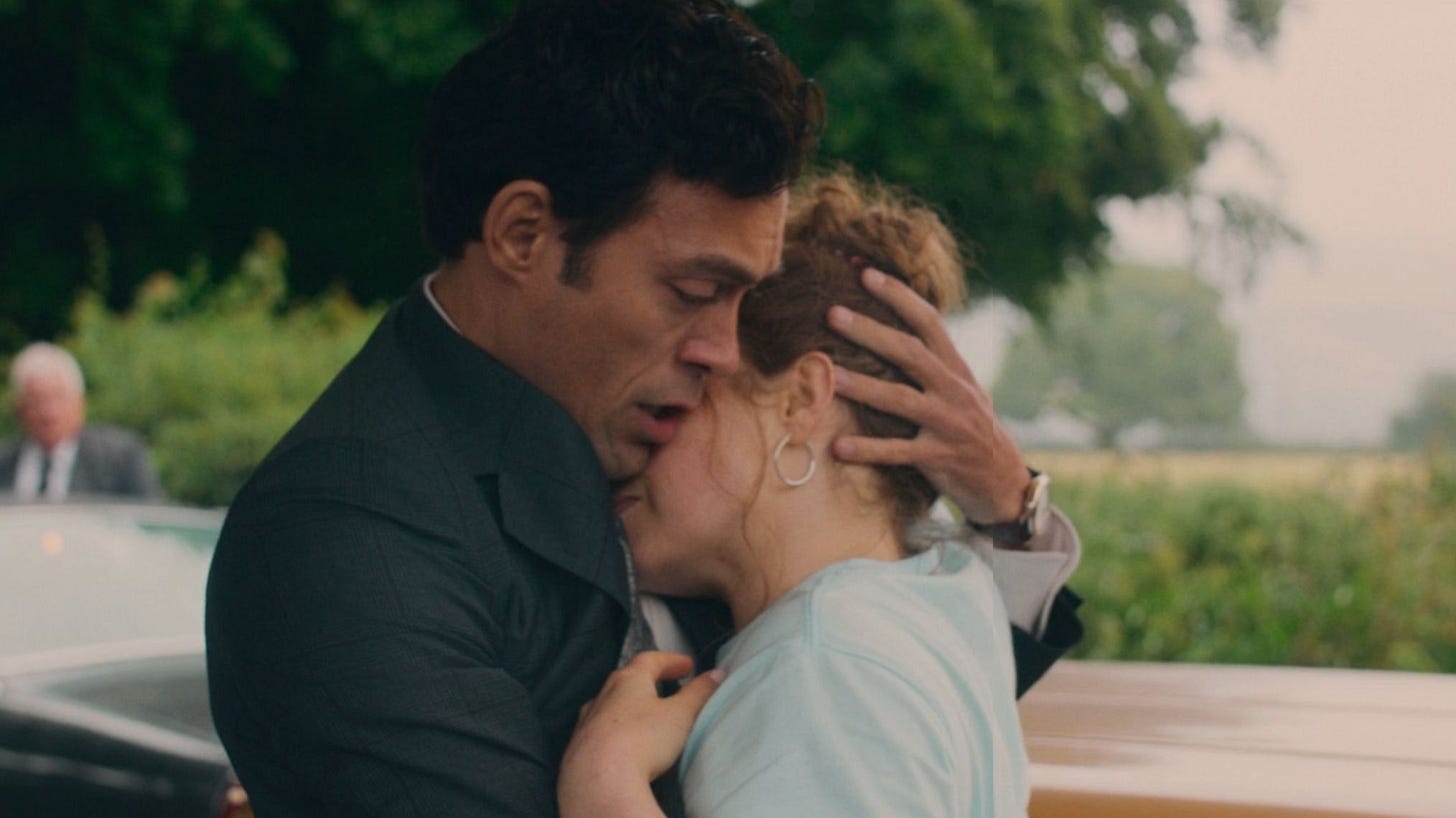
Open. Vulnerable. Honest. We yearn. Now what?
We yearn. So, that’s what. Now what?
Do we all just listen over and over and over and over again to Imaginary Lover" by the Atlanta Rhythm Section. Is there any more to that “Champagne Jam,” than drowning in the melancholy of its bubbles?
So if that’s what, now what?